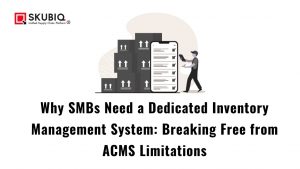India’s national logistics sector comprises over seven lakh registered companies with a combined turnover of over Rs. 55,000 crores. The industry contributes to the GDP at about 2 percent and employs about 18 Million people directly and indirectly in various warehouses, freight stations, etc.
 In the last few decades, India has witnessed many changes that have led to increased growth in the domestic value chain for the logistics sector. However, it has been observed that despite these changes-international trade was largely unorganized and mostly depended on import-export arbitrage, which is less reliable than international trade through formal channels.
In the last few decades, India has witnessed many changes that have led to increased growth in the domestic value chain for the logistics sector. However, it has been observed that despite these changes-international trade was largely unorganized and mostly depended on import-export arbitrage, which is less reliable than international trade through formal channels.
 There are five main features of logistics. Some of them include:
There are five main features of logistics. Some of them include:
 Several factors affect the national logistic policy in India. These factors include:
Several factors affect the national logistic policy in India. These factors include:
 Just as there are challenges facing the national logistics policy in India, there are opportunities for national logistics around technology. India is currently very low-tech, but it is steadily increasing its technology and knowledge base to develop an effective logistics policy. Below are some of the opportunities in the logic sector.
Just as there are challenges facing the national logistics policy in India, there are opportunities for national logistics around technology. India is currently very low-tech, but it is steadily increasing its technology and knowledge base to develop an effective logistics policy. Below are some of the opportunities in the logic sector.
 In the last few decades, India has witnessed many changes that have led to increased growth in the domestic value chain for the logistics sector. However, it has been observed that despite these changes-international trade was largely unorganized and mostly depended on import-export arbitrage, which is less reliable than international trade through formal channels.
In the last few decades, India has witnessed many changes that have led to increased growth in the domestic value chain for the logistics sector. However, it has been observed that despite these changes-international trade was largely unorganized and mostly depended on import-export arbitrage, which is less reliable than international trade through formal channels.
What is logistic
Logistics is the delivery of materials, goods, and services to keep the flow moving efficiently to meet customer demand. This can be achieved through planning, coordination, and execution of transportation management. With this in mind, a country needs to have a good national logistics policy to increase its competitiveness in the world market.Features of Logistics
 There are five main features of logistics. Some of them include:
There are five main features of logistics. Some of them include:
- Transportation and movement of goods
- Inventário
- Information and Control
- Storage and warehousing
- Packaging and unitization
Challenges in the national logistics policy industry in India
 Several factors affect the national logistic policy in India. These factors include:
Several factors affect the national logistic policy in India. These factors include:
- Port issues
- Transport Issues
- Tax structure Issue
- Customer service
- Fuel cost
- Skill and Technology Deterrents
- Government regulation
- Geographical nature of the country
Opportunities in the logistics sector
 Just as there are challenges facing the national logistics policy in India, there are opportunities for national logistics around technology. India is currently very low-tech, but it is steadily increasing its technology and knowledge base to develop an effective logistics policy. Below are some of the opportunities in the logic sector.
Just as there are challenges facing the national logistics policy in India, there are opportunities for national logistics around technology. India is currently very low-tech, but it is steadily increasing its technology and knowledge base to develop an effective logistics policy. Below are some of the opportunities in the logic sector.
- Data and analytics
- Cloud computing
Importance Of The Logistics Sector In India
The logistics sector in India is growing because of the need for it. The industry is very important, and the government of India is trying to make way for businesses to grow and develop properly. Below is some importance of the logistics sector in India.- Boost economic growth
- Improvement of the infrastructure
- Improvement of the quality of life
- Increase job creation
- Increase the efficiency of the logistics sector
- Increase in chances for exports
The Role Of Government In Logistics
Government has a lot of roles in logistics. The government of India has been working in the logistics sector since the year 2000. The government is focusing on all aspects of logistics, which include:- Facilitating Investment in logistics projects through fiscal policy measures and financial incentives to promote infrastructure and logistics development investments.
- Providing logistical infrastructure, financial incentives, and tax breaks aimed at improving infrastructure within and between states.
- Providing a boost to the development of logistics assets by proposing licensing norms that encourage banks to finance warehouse infrastructure.
- Encouraging states to create a favorable environment for developing logistics hubs and corridors in order to increase the degree of national integration.
- Providing training programs and appropriate skill development initiatives to create a skilled workforce.
What Is A National Logistics Policy?
The National Logistic Policy (NLP) is the guiding document of the Government of India on logistic development, implementation, and design. The NLP sets the direction for policymakers and stakeholders in logistics sectors such as transportation, warehousing, supply chain management, and customs-related matters. The policy gives a framework for government agencies to implement goals. Read more about India’s New Policy Framework on Skubiq.The National Logistics Policy 2022 In India
The national logistics policy directs the development of India’s logistics sector.- Logistic costs are to be cut by half by 2030.
- India aims to be among the top 10 LPI by 2030
- Creation of a decision support system
- Improve the competitiveness of the Indian goods
- A unified logistic platform interface
The Logistics Initiatives Of The Government
- The government has experienced several logistical challenges during its project implementation, including heavy logistics costs and delays in logistical commodities. This can be overcome by a good national logistics policy that will help improve the infrastructure and encourage private sector participation in these projects.
- The government has faced many problems with regard to supply chains and the logistics sector. There have been changes in the policies, which have made it hard for companies to run their business smoothly. Regular changes and amendments to laws are frustrating and cause more problems than solutions.
- The government has experienced many problems with the supply chain and the logistics sector. There is a lot of inconsistency regarding policies, regulations, and procedures, which causes difficulties and inefficiencies in courier deliveries.
- The government faced several challenges due to the delay of logistics products, which affected the ministry of defense and its clients. New challenges are coming up due to the fast-growing population and changing nature of consumption patterns.
Conclusão
In conclusion, the national logistics policy has grown over the years, and the government has provided a solid foundation for the industry in India to grow. The logistics sector is currently working on improving its infrastructure, which will provide a solid foundation for the country’s further development. Visit us online for more information. Read more articles like:Why Use Warehouse Management Softwares For Your Business?



